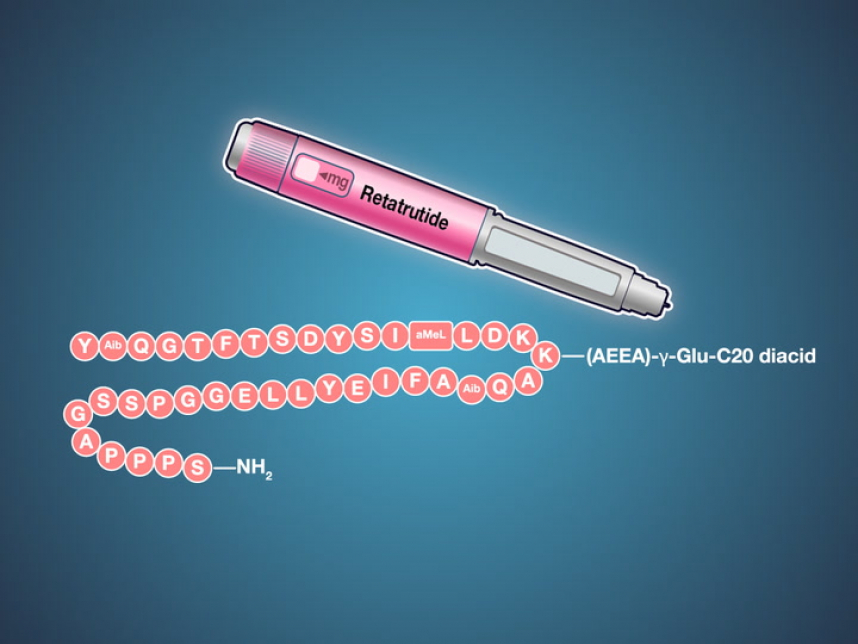
The company said Eli Lilly’s experimental next-generation weight-loss drug mimics three hormones instead of just one or two and continues to show promising clinical trial results for additional health benefits.
Researchers reported at the European Society of Cardiology meeting that Lilly’s retatrutide significantly reduced patients’ blood lipid levels and cardiovascular risks in a mid-stage trial.
At 48 weeks, for example, retatrutide had reduced levels of triglycerides by up to 40.6%, and levels of a protein called apoC-III involved in glucose metabolism and inflammation by 38%.
Lilly had earlier announced that in the same trial patients taking injections of retatrutide at the highest dose had lost roughly 24% of their body weight, exceeding what the current popular weight-loss drugs demonstrated in clinical trials.
Obese patients in the trial also had significant improvements in their liver fat.
Like tirzepatide, the active ingredient in Lilly’s Mounjaro and Zepbound, and semaglutide, the active ingredient in Wegovy and Ozempic from Novo Nordisk, retatrutide mimics the appetite- and blood-sugar-reducing effects of a hormone called glucagon-like peptide 1, or GLP-1.
Tirzepatide and retatrutide also mimic a second hormone called glucose-dependent insulinotropic polypeptide (GIP) to reduce appetite and blood sugar.
Retatrutide also mimics a third hormone, glucagon, promoting fat breakdown for energy consumption and preventing dangerously low blood sugar levels.
Lilly is currently testing retatrutide in late-stage trials.